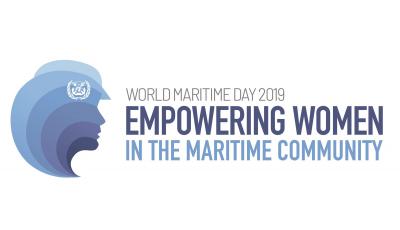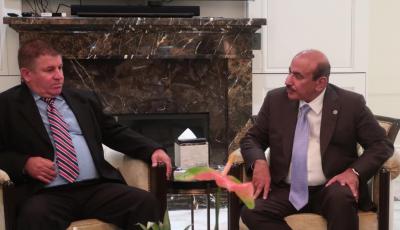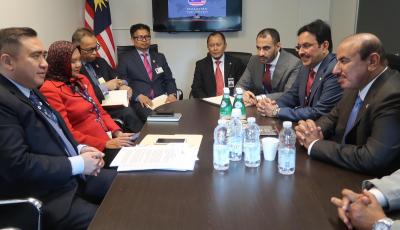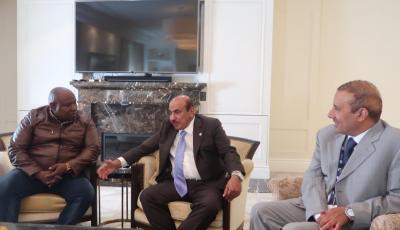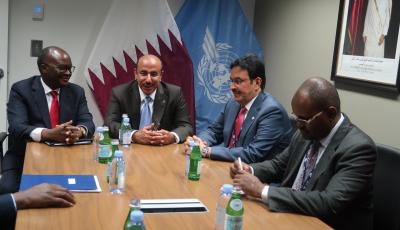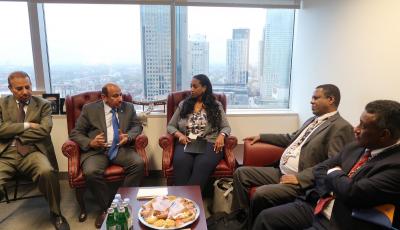
Minister Meets with Ethiopian Counterpart
Montreal – CanadaHE Minister of Transport and Communications Jassim Saif Ahmed Al-Sulaiti met with HE Ethiopian Minister of Transport Mrs. Dagmawit Moges, in Montreal, Canada, today.The two ministers discussed several topics of common interest between the two friendly countries covering the fields of transportation and civil aviation and means of further enhancing them.Qatar’s Ambassador to Canada HE Mr. Saud bin Abdullah Al Mahmoud and Civil Aviation Authority (CAA) Chairman HE Mr. Abdulla bin Nasser Turki Al Subaey attended the meeting.

